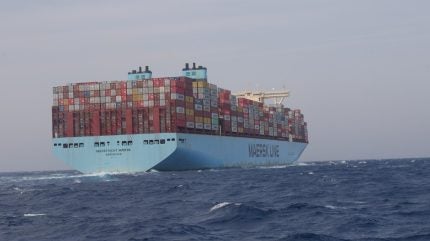
The US and UK have launched a series of strikes against 16 Houthi rebel positions in Yemen overnight, raising tensions in the Middle East to a level unprecedented in years.
In a statement released by the UK Prime Minister Rishi Sunak, the strikes were “limited, necessary and proportionate action in self-defence”. Turkey’s President Recep Tayyip Erdoğan has countered this, claiming the airstrikes risk turning the Red Sea into a “sea of blood”.
US President Joe Biden welcomed the strikes, saying Washington “will not hesitate to direct further measures to protect our people and the free flow of international commerce as necessary”.
The US-UK airstrikes come after the Houthi movement, which is in charge of most of Yemen, has launched multiple attacks against commercial vessels crossing the Red Sea in response to Israel’s war in Gaza. Washington and London have warned against further attacks in the past, but things escalated quickly on 9 January when the Yemeni rebel group launched the largest attack in the Red Sea to date. The UK warship HMS Diamond repelled the attack.
Despite this, businesses have reacted negatively to the developments in the region. According to Reuters, Tesla will suspend car production output at its factory near Berlin, Germany, for two weeks (29 January – 11 February). This comes as a result of the growing tensions in the Red Sea, which have forced companies to redraw shipping routes, causing supply chain delays and bottlenecks.
Other shipping giants, including Maersk, Hapag-Lloyd and MSC, have suspended their Red Sea routes until further notice. Maritime AI platform Windward says 70% fewer vessels have passed through Bab al-Mandab Strait since the Houthis attack.
How well do you really know your competitors?
Access the most comprehensive Company Profiles on the market, powered by GlobalData. Save hours of research. Gain competitive edge.

Thank you!
Your download email will arrive shortly
Not ready to buy yet? Download a free sample
We are confident about the unique quality of our Company Profiles. However, we want you to make the most beneficial decision for your business, so we offer a free sample that you can download by submitting the below form
By GlobalDataThe latest US-UK airstrikes have sent shock waves around markets, with oil prices jumping up following the strikes. However, it is unclear how the escalating tensions in the Red Sea could impact trade, as well as foreign direct investment in Europe.
William Wechsler, senior director of Middle East Programmes at the Atlantic Council, wrote that this now depends mostly on how the Houthis will respond to the airstrikes.
According to Wechsler, international trade is severely restrained by eight maritime chokepoints imposed by “immutable geography”. Half of them find themselves between Europe and Africa: the Bosporus Strait, the Suez Canal, the Bab-el-Mandeb Strait (off the coast of Yemen) and the Strait of Hormuz, where Iran has taken advantage of tensions to seize cargos near its shores.
“Today, the greatest threat to these chokepoints is Iran and its proxies. The regime in Tehran has long threatened to shut down Hormuz and repeatedly attacked shipping in the area,” Wechsler explained.
Iran marked itself as a participant in the conflict when its marines yesterday (11 January) seized a Greek-operated ship the US took from them about a year ago on sanctions grounds.
Wilson Jones, defence analyst in the ADS Division at GlobalData, noted that, in Tesla’s case, the timing of the decision to stop output at the German plant indicates the company knows “they’re going to run low/out of some materials then and need two weeks for supply lines to get rerouted.”
However, even if the short-term trade disruptions are manageable, their long-term impact is yet to be felt. Research done by the Kiel Institute for the World Economy shows the volume of containers transported through the Red Sea plummeted by more than half between November and December last year.
Because of that, freight costs and transportation time between East Asia and Europe have gone up, while exports from Germany and the EU are now significantly lower than in November 2023.
Overall, global trade fell by 1.3% from November to December.
“This probably isn’t going to shut down European industrial investment, but highlights these issues, especially fuel in an energy importing region, as a cost of doing business for future investments,” Jones tells Investment Monitor.







